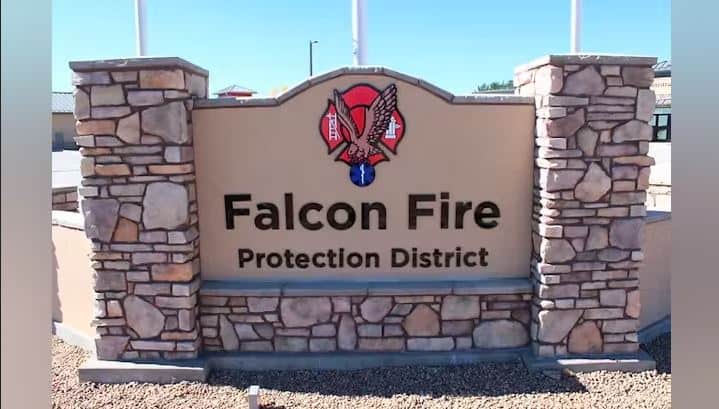Impromptu road closures are something that should be familiar to local residents. In recent months, utility problems, bad weather and traffic accidents have all caused temporary closures of major roadways in the Falcon area. From the perspective of Falcon Fire Protection District firefighters, a road closure often is not as big an issue as driversí reactions to an unexpected detour. While some people take the inconvenience in stride, others take actions that endanger first responders and road crews. Here are some firsthand examples as related by Falcon firefighters.
- A Falcon fire engine blocked a residential road so that a helicopter could land to transport a person having a medical emergency. A resident of the neighborhood drove around the engine and entered the landing zone, forcing the helicopter to abort its landing until the vehicle cleared the area.
- On April 1, an early morning water main break shut down Woodmen Road between Meridian Road and McLaughlin Road. Several drivers ignored the emergency vehicles with flashing lights and traffic cones blocking the road and attempted to drive through the scene.
- A serious traffic accident forced the closure of a major road. A firefighter turning traffic away from the scene encountered a driver who was insistent on continuing through instead of finding another route. The reason? ìI donít know any other way to get home.î
- Traffic accident: The accident and resulting debris may be blocking all or part of a roadway. Emergency crews may block the road to ensure the safety of victims and crews alike.
- Utility problem: Downed power lines and water main breaks do not happen often; but, when they do, roads may be closed for both driver safety and to allow utility crews to make repairs.
- Weather: Colorado is known for wild weather swings in both winter and summer. Roads may become impassable because of flooding or washouts, snow and ice, and/or accidents. Heavy rains or blowing snow can also impair visibility.
- Fire: Expect roads to be blocked in the immediate vicinity of any structure or wildland fire. Firefighters must position apparatus for effective firefighting, incoming mutual aid resources that need to stage near the scene, and charged hose lines that may cross streets. (Remember, it is illegal and dangerous to drive over a fire hose.)
- Evacuation: If evacuation becomes necessary because of a wild fire or natural disaster, some roads may be closed to allow residents to leave the area while also securing access for responding emergency crews.
- Practice situational awareness. Know what is going on in the area by monitoring local media outlets and their social media feeds.
- Know the smartphone. Smartphone users should be familiar with their phonesí mapping features.
- Ask Siri or Cortana: In a pinch, a smartphoneís digital assistant can help with directions.
- Paper works, too. Keep a recent hardcopy map of the area in each vehicle.
- Practice: Periodically drive alternate routes to stay familiar with them. Be on the lookout for new routes.
- Fill up regularly. Make it a habit to keep a mostly full fuel tank (e.g. fill up when it drops to half) in case it becomes necessary, in the words of the popular song by Supertramp, to ìtake the long way home.î





